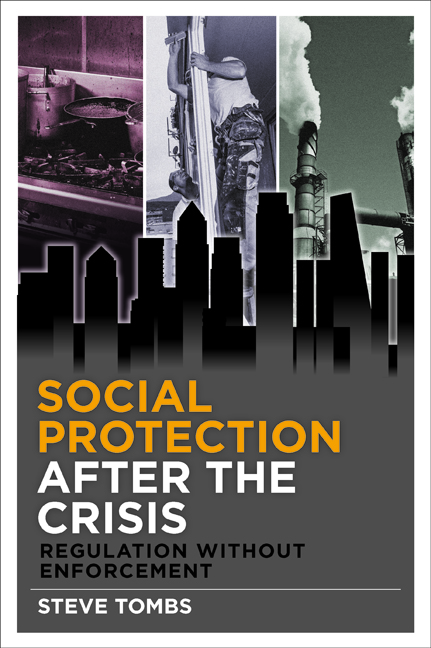Book contents
- Frontmatter
- Contents
- List of tables and figures
- About the author
- Acknowledgements
- one Introduction: some starting points
- two The new material and moral saliences of private capital
- three Framing the crisis: moral critique and the renewal of ‘business as usual’
- four Regulation, orthodoxy and hegemony: crisis, what crisis?
- five Re-regulation in action: ‘Better Regulation’
- six Regulatory inaction? Regulation without enforcement
- seven After regulation?
- Notes
- References
- Index
three - Framing the crisis: moral critique and the renewal of ‘business as usual’
Published online by Cambridge University Press: 01 September 2022
- Frontmatter
- Contents
- List of tables and figures
- About the author
- Acknowledgements
- one Introduction: some starting points
- two The new material and moral saliences of private capital
- three Framing the crisis: moral critique and the renewal of ‘business as usual’
- four Regulation, orthodoxy and hegemony: crisis, what crisis?
- five Re-regulation in action: ‘Better Regulation’
- six Regulatory inaction? Regulation without enforcement
- seven After regulation?
- Notes
- References
- Index
Summary
Everywhere the crisis of the private financial system has been transformed into a tale of slovenly and overweening government that perpetuates and is perpetuated by a dependent and demanding population. This is an amazing transformation of the terms in which our circumstance is to be understood. For about 10 days the crisis was interpreted as a consequence of the ineptitude of the highly paid, and then it transmogrified into a grudge against the populace at large, whose lassitude was bearing the society down to ruin. (Robinson, 2012)
Introduction
In September 2008, in contrast to any other social catastrophe – global warming, widespread hunger, poverty and the routine deaths of millions of children, AIDS, TB and malaria epidemics, about which ‘there always seemed to be time to reflect, to postpone decisions’ (Žižek, 2009a, 80) – one issue presented itself as ‘an unconditional imperative which must be met with immediate action’: the ‘banks’, for which read finance capital in particular and the global neoliberal order in general, had to be saved (Žižek, 2009a). In the UK, ‘golden parachutes’ (Žižek, 2009a, 12) were handed out to the UK banking system: in December 2009 the National Audit Office (NAO) (2009e) produced an ‘overview of the government's response to the crisis’ which showed that ‘the purchases of shares by the public sector together with offers of guarantees, insurance and loans made to banks reached £850 billion, an unprecedented level of support’. The financial commitments made by governments since September 2008 have included purchasing shares in banks to enable re-capitalisation, indemnifying the Bank of England against losses incurred in providing liquidity support, underwriting borrowing by banks to strengthen liquidity, and providing insurance cover for assets. The government ‘cash outlay’ is said to have peaked ‘at £133 billion, equivalent to more than £2,000 for every person in the UK’ (House of Lords and House of Commons, 2013, 14).
In the US, the Troubled Asset Relief Program (TARP), developed on the back of the ‘Paulson Plan’, effectively bailed out the US financial services sector, representing what has been labelled a ‘financial coup’ (Harvey, 2009; Johnson, 2009). Under TARP, the US Treasury committed up to $700 billion to promote stability in financial markets through the purchase and guarantee of ‘troubled assets’ (Congressional Budget Office, 2012, 1), and by February 2012, $431 billion of this had been disbursed (Congressional Budget Office, 2012, 2).
- Type
- Chapter
- Information
- Social Protection after the CrisisRegulation without Enforcement, pp. 51 - 74Publisher: Bristol University PressPrint publication year: 2015



